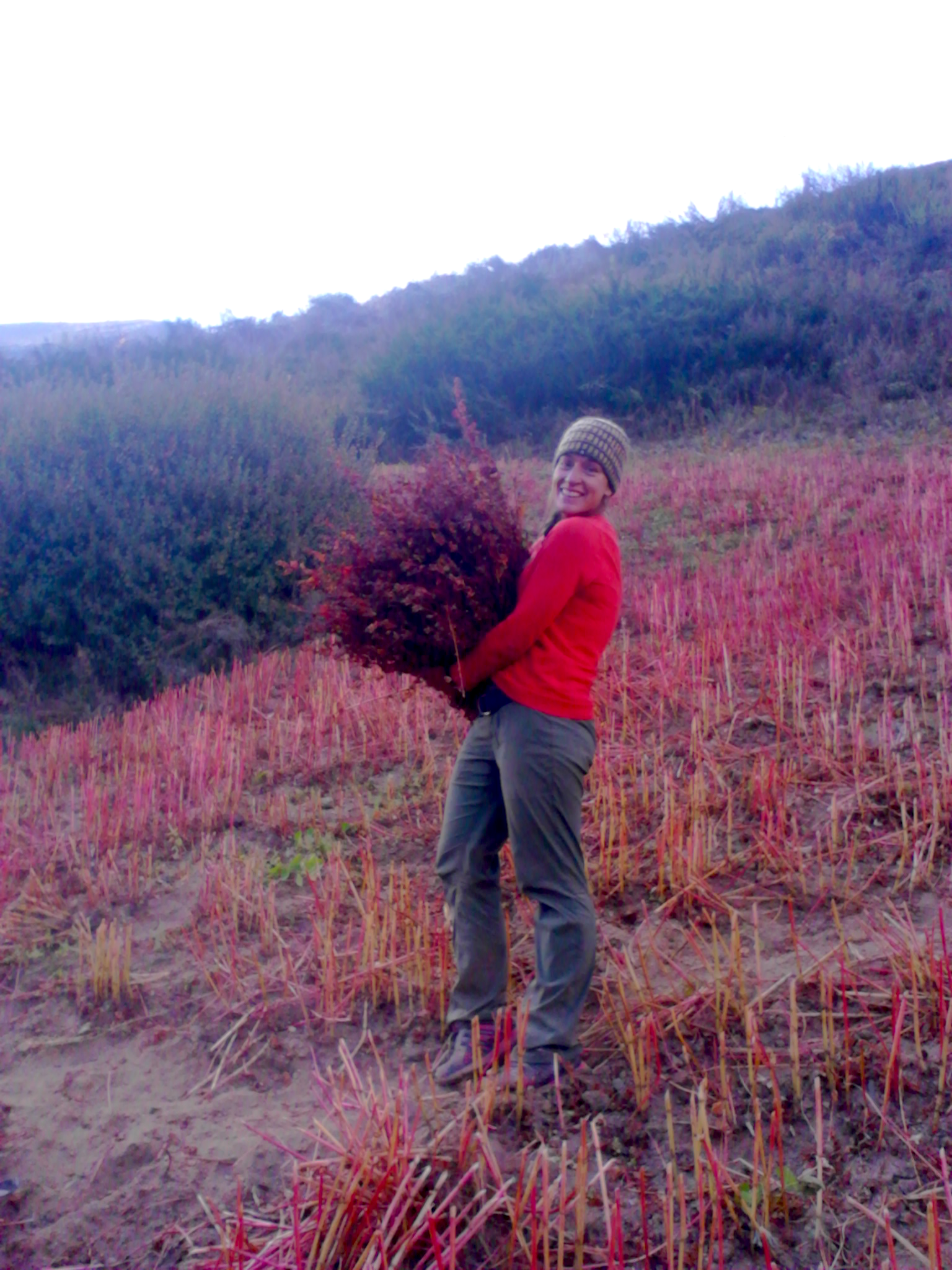
Anna Rushton, 2013-2014, Rwanda, at a pottery cooperative in Kigali she visited regularly for her research project. Often the employees’ children would come to the cooperative while their parents worked. In return for letting Anna interview them, she taught their school-aged children and some adults conversational English once a week.
When I found out that I was selected for a Fulbright grant to conduct my thesis research in Rwanda in 2013, I was beyond elated. I had studied the Fulbright U.S. Student Program website, solicited feedback from professors, and put forth my best effort into the application. Realizing that I had achieved my goal was an incredible feeling, but I was also terrified. In a few short months, I would be moving to Rwanda with my then nine-year-old daughter. I was not a typical Fulbrighter: I was a single mother who worked full-time through graduate school in order to make ends meet. I would have to quit my job and uproot my child to make this momentous move. I had been to Rwanda before by myself, so I had an idea of what to expect, but bringing a child would be a whole new experience.
I began planning immediately. Online resources were scarce, so I relied on contacts I had made on my last visit and a website designed for the Kigali expat community. I chose an international school for my daughter to attend, researched health insurance options, and hoped to secure a place to live shortly after we arrived. I made sure to talk with my daughter at length about what she could expect for our year in Africa. Bringing your family abroad, whether a child or a spouse, requires a great deal of planning and forethought.
We arrived safely in Kigali, and my daughter settled into her new school. Naturally, people were curious about us and we found ourselves answering many questions about the United States and life in our home country. I often took her with me to my research sites, where she was able to interact with other children in the areas where I worked. We celebrated American holidays with our Rwandan friends, hosted American food-themed dinners, and combed the city for treats which reminded us of home (bagels, a fake Christmas tree, and cheddar cheese were big hits). I took my role as a cultural ambassador seriously, and what I began to realize is that my daughter was just as much of an ambassador as I was. Children are naturally curious and often willing to ask candid questions. My daughter handled her experience beautifully. My once shy, reserved little girl had grown into a confident and communicative mutual exchange enthusiast!
Bringing family abroad as a Fulbright grantee can be scary, especially if you will be living in a developing country or one you are previously unfamiliar with. Planning ahead, relying on the advice of people in-country, and consulting your country guidelines, if available, will be your best resources to ensure you have a smooth and successful experience. Living in Rwanda has been the most rewarding experience of our lives. I am so thankful that the Fulbright Program supports the ambitions of people with families. I would encourage anyone considering applying to go for it! You and your family will benefit immensely from the experience.



4 Comments
Absolutely!! I took my then 5 year old son to the USA from South Africa. It is very daunting, challenging but, my son will never forget the 4 years spent there
nice it is great job
please come to pakistan also am very impressed by you .it is the way to show and make peacefull environment and making us great.
.it is the way to show and make peacefull environment and making us great.
please come to pakistan also